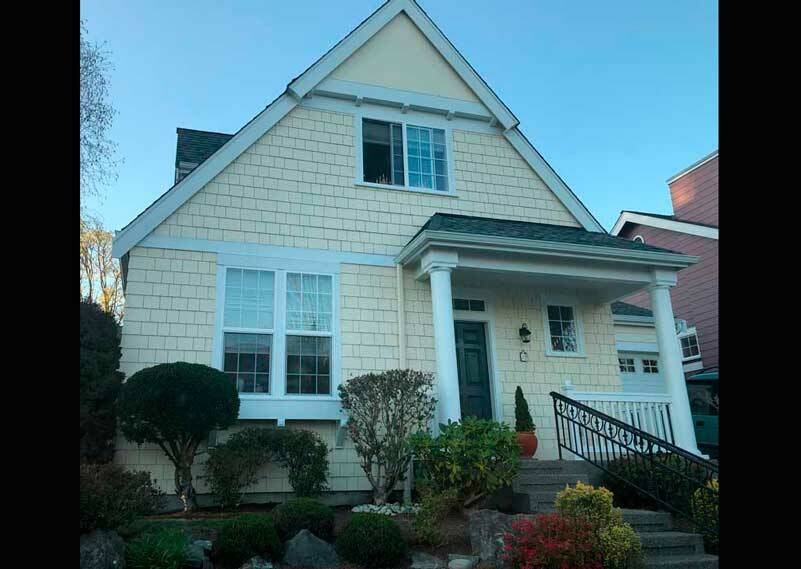By Morf Morford, Tacoma Daily Index
The housing market gets more abstruse and contradictory – and intense – almost every day. And the impacts of housing dynamics and repercussions ricochet in areas few of us would have imagined possible.
In early June, for example, two major nationwide home insurers (State Farm and Allstate) are no longer offering home insurance to new customers in California, because of “historic” construction cost increases and “rapidly growing catastrophe exposure”. In other words, housing has become literally “unaffordable” – and not just for home buyers.
Housing is/was your best investment
It’s been a guiding principle that home ownership is an individual’s best investment.
Home equity has been the foundation of individual, family and generational financial stability essentially forever.
Investment institutions, at times, get the memo and invest on a vast scale. And make a fortune. Sometimes.
Housing costs, interest rates and market forces might frustrate or stymie individual home buyers – but multiplied by a few hundred, these same forces can drive even the largest hedge funds into dangerous fiscal territory. Mix in massive forest fires, unprecedented hurricanes and tornadoes, material supply chain problems and skilled (and not so skilled) labor shortages and you have a housing market in flux to the point of unforeseen volatility.
And, if you are paying attention, you know that each one of these factors is increasing in intensity and frequency as time goes on.
A generation ago, a home could be purchased by a family with a single income. Currently, few homes can be purchased even with two incomes. Home equity or an outside loan (or gift) is almost essential for most home purchases – especially for first-time buyers.
Mortgage payments and rents are taking up a larger and larger percentage of the average family’s income.
We are not unique in this situation
A recent survey in southern British Columbia, Canada found that 30 percent of renters are spending more than 30 percent of their income on rent. 11 percent of renters are spending more than half of their income on housing.
Every shift in income or interest rates or health and relationship status sends shivers up and down the market – and only increases the variability of what should be, in a solid and healthy economy, the most stable market of all – shelter.
We’ve had a situation for several years now where housing has become primarily an investment – not shelter, and certainly not home. Fortunes have been made – and lost – in real estate, on a scale few of us could have imagined. Standard rules, principles and guidelines have been up-ended.
Is housing the best investment? Or the worst? Is renting a good strategy? Or is it locking one out of home ownership? Or is renting the best and most flexible response to a housing market continually in flux? Is a mortgage the ultimate financial bondage?
One builder recently told me that it is currently cheaper to build an entirely new home than to buy an older home. Has that ever been true before?
The real estate market, once the most stable center of our economy has become a game something like musical chairs, with more and more of us excluded from the game as it progresses.
In one recent survey, 26 percent of homeless people surveyed were working people who did not have enough income to afford to pay rent.
With fees and deposits, credit checks and a variety of restrictions, renting has become as complicated and expensive as home buying used to be.
To put it mildly, this is nowhere near a sustainable market. Whatever is going on in housing currently, as with every market, will not last forever.
Even established home owners are not immune from the unpredictable vagaries of the current housing market. One family member has a mortgage of over $4,000 a month – that’s about $50,000 each year. For the full term of the mortgage.
At one third of income, that means that they need to earn at least $150,000 a year for at-minimum 15 years – without any health issues, job loss, unexpected expenses or relationship changes. And we know how likely that can be.
According to realtors who track such things, the value of my home has dropped by more than $100,000 in the past year. I am not actively in the market, but if I were, that much of a price swing could make a huge difference in both my future housing and my net worth.
The bidding wars of a few years ago are largely over. At least in most neighborhoods. And, in spite of price drops for some of us, some housing prices are still astronomical.
A standard formula seems to be that sellers ask for double the price they paid just a few years ago. Sometimes they get it. And sometimes they don’t, and the house sits on the market for months.
Demographics rule
I live in a neighborhood in Tacoma’s North End. The vast majority of homes are owned and occupied by those well over 60 years old. As those home owners downsize, move on or die, those homes (most of them large) will be on the market – soon.
But who could afford them? Who wants, or could afford a 4-6 bedroom home that, in most cases is around a hundred years old and with a full roster of deferred maintenance?
Most families are much smaller than a generation ago. Who has a use for such large homes?
Will they be divided into apartments? Will extended families, or non-traditional families fill them?
If it takes two full-time incomes (and assistance from family) to buy a typical home, who will be able to finance a purchase on that scale?
The housing market could easily become even stranger before it gets stable again.





